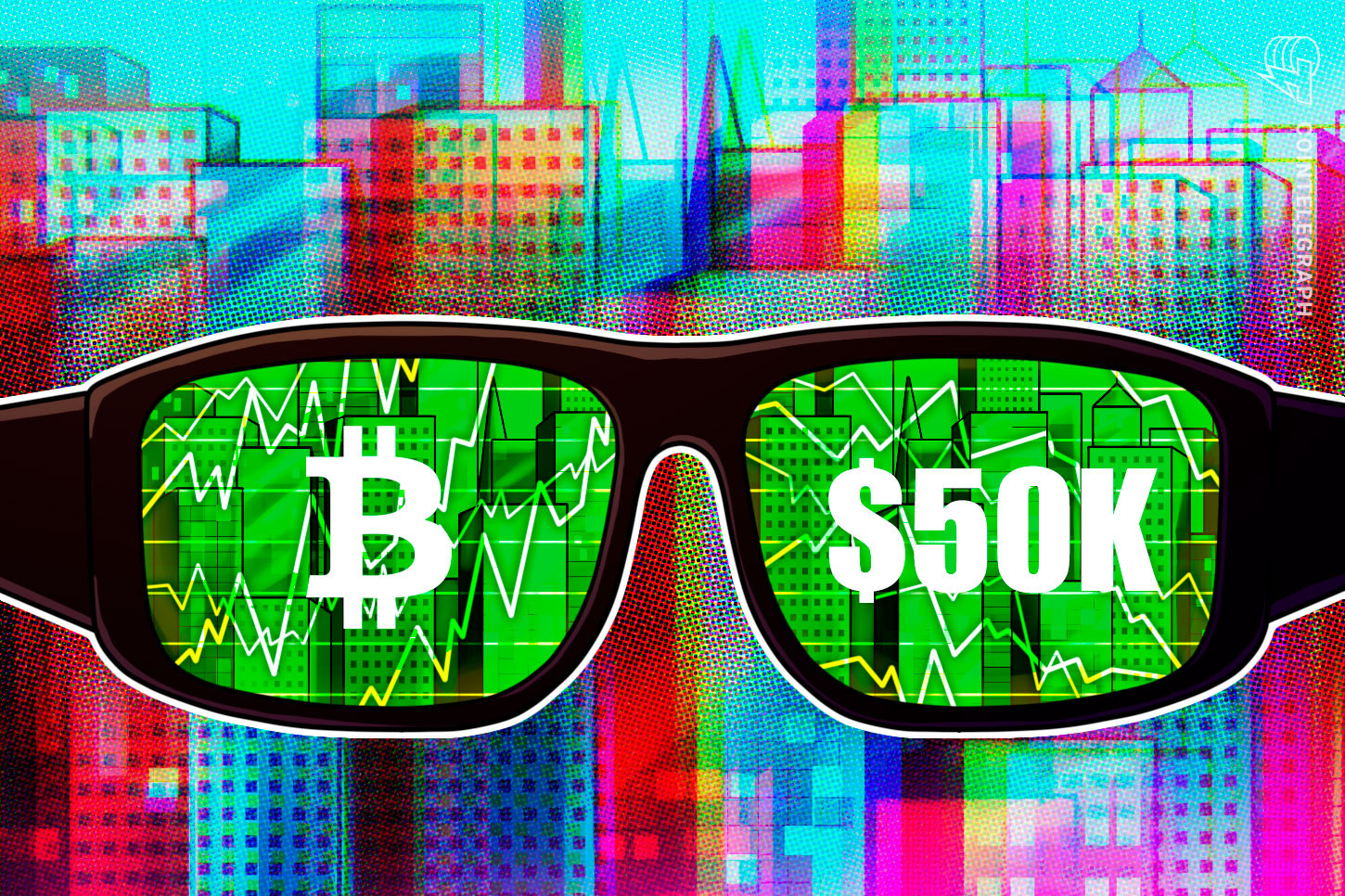Bitcoin (BTC) has already hit $50,000 on some exchanges but needs to get whales on its side to flip it to definitive support, data suggests.
In a tweet on Feb. 16, Ki Young Ju, CEO of on-chain analytics service CryptoQuant, highlighted the so-called "Coinbase premium" as one of the final hurdles for BTC/USD.
Negative premium slows upward grind
On Tuesday, a clear battle was emerging within Bitcoin trading as $50,000 stayed de facto out of reach for bulls.
Analyzing the premium, which pits the Coinbase BTC/USD price against the Binance BTC/USDT pair, Ki argued that the until it neutralized, higher levels would remain unlikely.

Currently, the premium is negative, meaning that it is cheaper to buy Bitcoin on Coinbase. The result is that traders, and particularly whales, will continue to accumulate. Only once the balance stabilizes will momentum appear to tackle $50,000 more convincingly.
"This $50k battle is about Coinbase whales(USD) vs. Stablecoin whales(USDT)," Ki wrote.
"Negative Coinbase premium, but plentiful stablecoins in exchanges. Negative premium should be cooled down to get another leg up."
Exchange stablecoin balances reaching new all-time highs in recent days point to a readiness to exchange for other assets. The biggest stablecoin Tether (USDT) meanwhile has been accelerating its "minting" in recent months with USDT market cap now nearing $33 billion.
Nonetheless, at the time of writing, whales were still lined up to sell at and above $50,000. A look at Binance orderbook data showed incremental sell orders appearing every $1,000 up to $55,000.

No "FUD" over GBTC premium
Meanwhile, one analyst warned against misinterpreting a drop in another premium, this time in institutional investor circles.

Since the start of 2021, the Grayscale Bitcoin premium, which is the price paid by investors for shares in the Grayscale Bitcoin Trust (GBTC), has fallen. Far from signalling reduced interest in Bitcoin, the more competitive buy-in opportunity is a result of more shares being available.
"A large $GBTC premium is a sign of strong demand for bitcoin. Institutional inflows into $GBTC have been one of the largest drivers of this bull market, so everyone's eyes are on that premium. And now that the premium has collapsed, this has had many market participants worried," macro analyst Alex Krueger explained on Monday.
"The premium has not collapsed due to faltering demand for $GBTC (in the secondary market), but rather due to increasing issuance -- issuance skyrocketed in the last few months, helping reduce the premium with a lag. The $GBTC premium trade simply got too crowded."
As Cointelegraph reported, Grayscale has been continually upping its BTC holdings, also restarting buys for Ether (ETH) in February after a nearly two-month hiatus. As of Feb. 12, it had Bitcoin assets under management worth $31.1 billion.
This article does not contain investment advice or recommendations. Every investment and trading move involves risk, and readers should conduct their own research when making a decision. While we strive to provide accurate and timely information, Cointelegraph does not guarantee the accuracy, completeness, or reliability of any information in this article. This article may contain forward-looking statements that are subject to risks and uncertainties. Cointelegraph will not be liable for any loss or damage arising from your reliance on this information.


